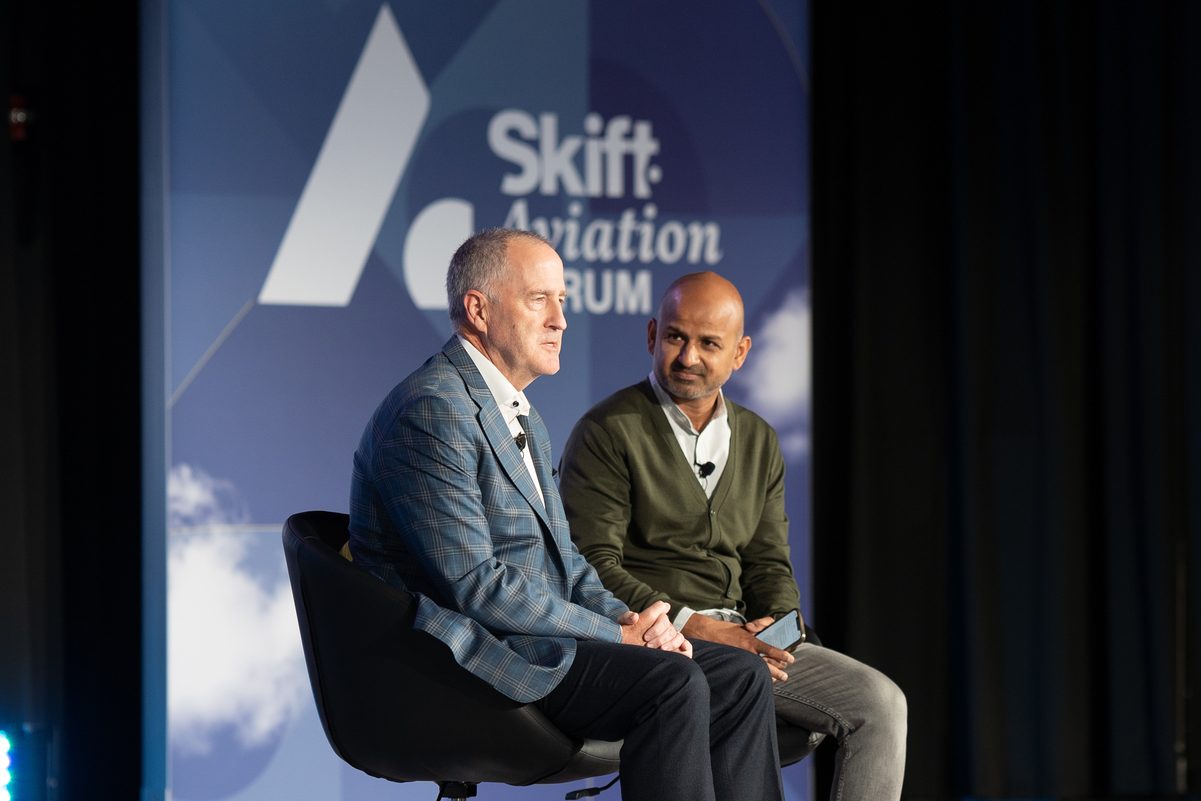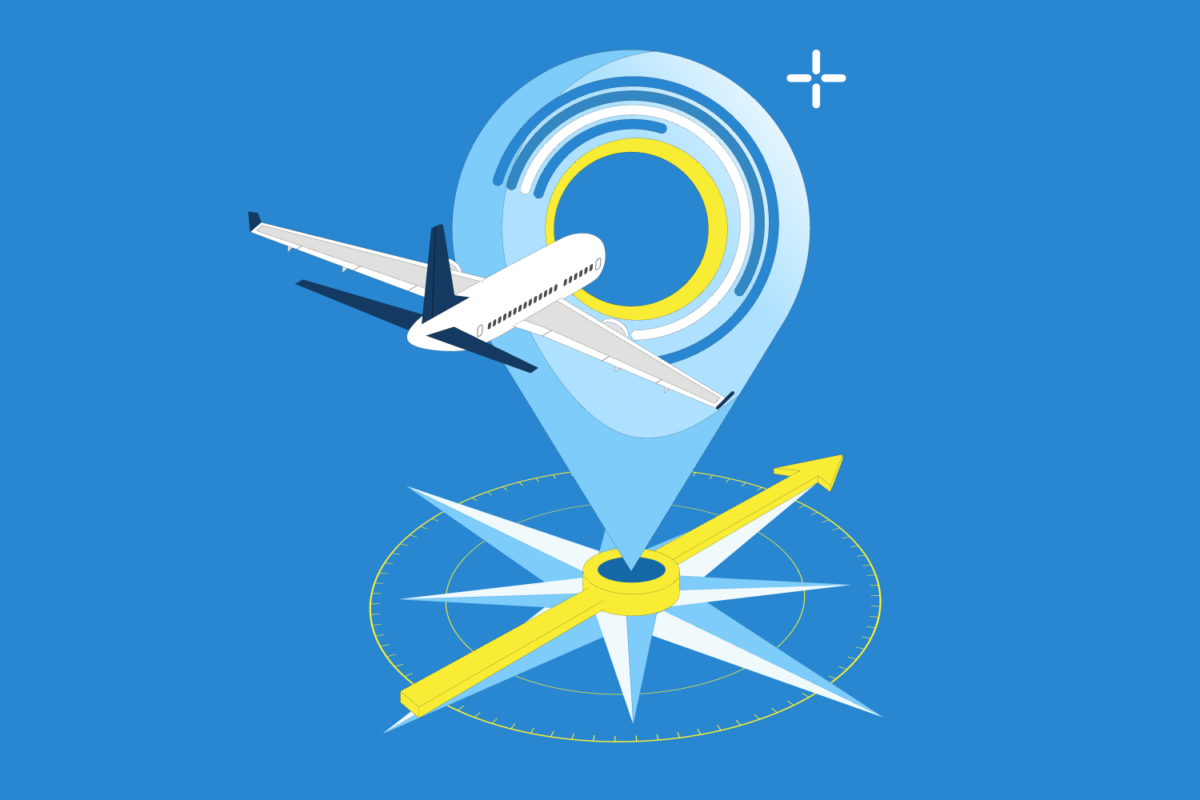DFW Airport CEO on the Value of Tech Investments for Swift Pandemic Recovery

Skift Take
Being ranked among the top 10 of the largest U.S. airports is no small feat, but it’s something that Dallas-Fort Worth International Airport has done repeatedly.
Traveler satisfaction in areas including check-in procedures and food and beverage put the Texas airport at the top this year. But that’s no surprise to Sean Donohue, who’s overseen DFW as its CEO for nearly a decade.
“This Dallas-Fort Worth region is just on fire economically,” Donohue said in a discussion with Skift founder and CEO Rafat Ali at Skift Aviation Forum in Dallas on Wednesday. “I’ve been here nine years and every year I see the projections and say, ‘I don’t think we can keep growing at this pace.’ And we do.”
Yet, that progress could have taken a significant nosedive when the airport lost 95 percent of its traffic after the pandemic hit. Part of Donohue’s plan was believing in the region’s economic viability due to its location in the center of the U.S., so it invested roughly $3 billion to create 4,000 construction jobs. The airport didn’t furlough or lay off any employees, which enabled DFW to bounce back quickly without having to train new staff once volume picked up.
Donohue’s staff created a new Airport Customer Experience service team to assist travelers. DFW also informs users of its app how long TSA wait times are in real time, which Donohue believes reduces some of the uncertainty travelers face. Furthermore, the airport has installed biometric boarding technology at international gates, an advance that has cut the time to board in half.
But another critical investment DFW has made that is no less important regarding traveler feedback is food and beverage. Donohue said the airport waived concessionaire fees for 18 months, which is good for the facility in the long term.
“Many of the concessionaires are minority- and women-owned businesses. We made a quick decision and decided to help them,” he said.
“They’re all open now. Every one of our concessionaires is open and they survived. When we think of resiliency, we think of it not just for DFW, but for our business partners as well.”
Customer satisfaction is among the top factors to consider when weighing innovation and return on investment, Donohue said. He also touched on Delta Air Lines’ decision to invest up to $200 million in electric air taxi company Joby for short trips to and from airports in New York and Los Angeles markets. Consulting firm McKinsey & Company — and carriers including American Airlines and United Airlines — consider air taxis part of the next normal.
But Donohue says DFW could likely only service 500 or 600 passengers a day with limited infrastructure to support advanced air mobility,
“Does that make sense? Maybe,” he said. “We’re doing the planning and design now just to be ready. It may be 2024 or 2025 at (Los Angeles International Airport). But I think we’ll be a year or two behind that.”
(Dallas-Fort Worth International Airport was the host sponsor of Skift Aviation Forum)




